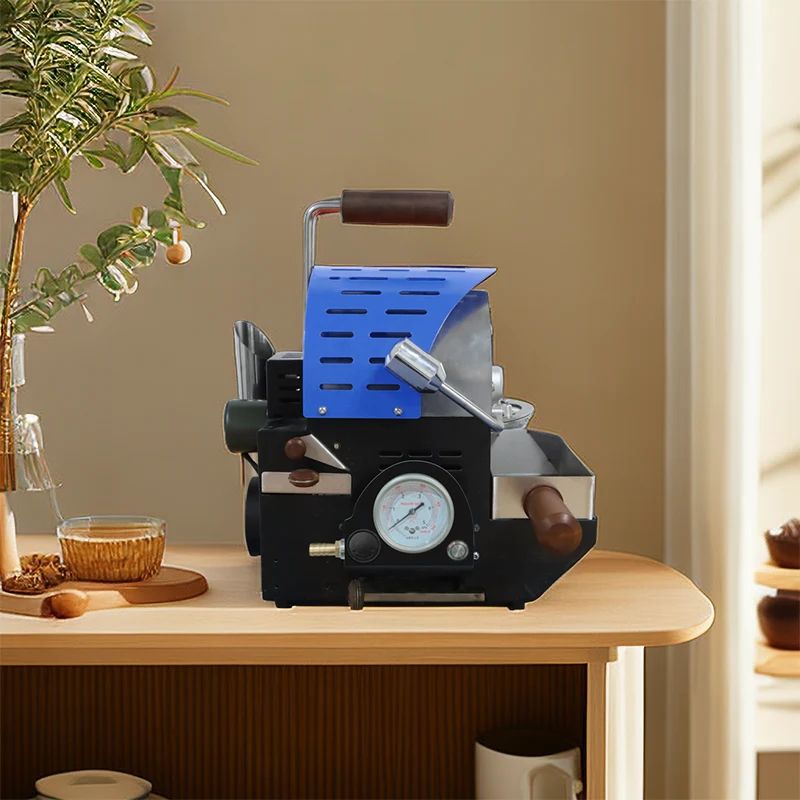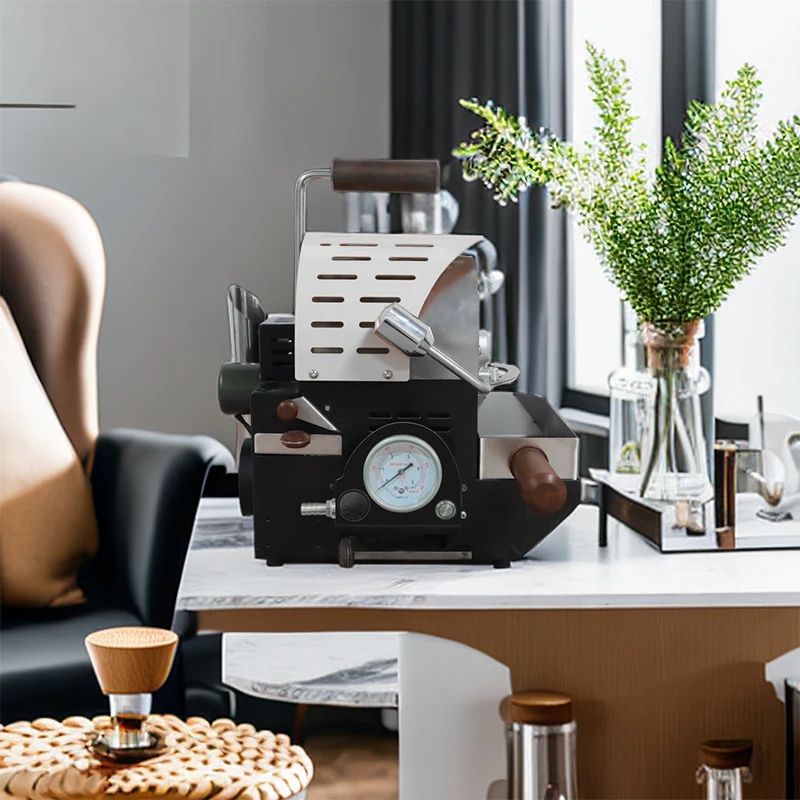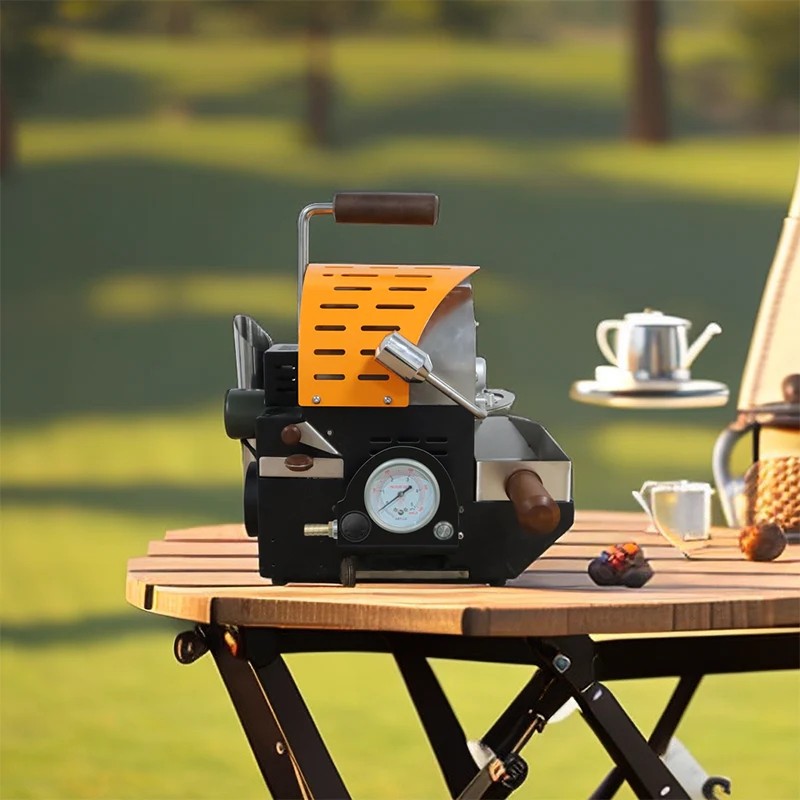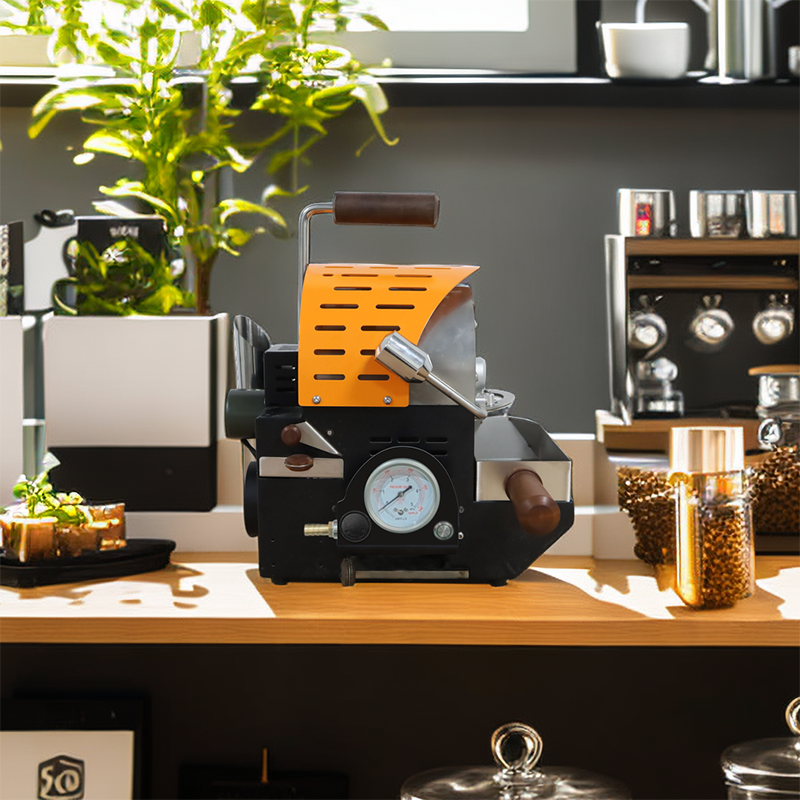
When it comes to crafting the perfect coffee roast, gas coffee roasters have become a preferred choice for professional roasters and serious coffee enthusiasts alike. These roasters allow for precise control over temperature and airflow, which is crucial for unlocking the complex flavors and aromas hidden within each coffee bean. In this guide, we’ll explore the benefits, types, and considerations for using a gas coffee roaster, helping you to determine if it’s the ideal choice for your roasting needs.
1. Why Choose a Gas Coffee Roaster?
Gas coffee roasters use natural or propane gas as a heat source, providing more consistent and controllable heat than electric roasters. This allows roasters to make precise adjustments during the roasting process, giving them the ability to bring out unique flavor profiles in different coffee beans. Here are some key reasons why gas coffee roasters are highly valued:
Precise Temperature Control: Gas roasters provide greater control over the roasting temperature, essential for developing complex flavors.
Consistent Heat Distribution: Gas heat disperses evenly, which minimizes the risk of uneven roasting.
Faster Heating: Compared to electric roasters, gas roasters reach the desired temperature more quickly, allowing for a more dynamic roasting profile.
2. Types of Gas Coffee Roasters
Different types of gas coffee roasters cater to specific roasting needs, from small-scale to commercial production. Understanding these variations can help you choose the right roaster for your operation:
Direct Flame Roasters: These roasters expose beans to a direct gas flame, which allows for rapid heating and shorter roasting times. This type is suitable for experienced roasters who can manage high-heat environments.
Hot-Air Roasters: Using gas-generated hot air to roast beans, these roasters provide a gentler roast that preserves delicate flavors and reduces the risk of charring.
Drum Roasters: Drum roasters are a popular choice, using gas to heat a rotating drum that tumbles the beans, ensuring an even roast. These are versatile and can handle a range of batch sizes, making them ideal for both small and large-scale roasting.

3. Benefits of Using Gas Coffee Roasters
Whether used by a small coffee shop or an industrial roastery, gas coffee roasters offer several distinct advantages:
Enhanced Flavor Development: The consistent, controllable heat from gas ensures that beans develop deep, complex flavors and aromas, resulting in a high-quality roast.
Energy Efficiency: Gas roasters are often more energy-efficient than electric options, especially when roasting large batches.
Customization: Gas roasters allow for greater customization of the roast profile, which helps achieve specific taste characteristics according to customer preferences.
Cost Savings: Although initial investment might be higher, gas roasters can be more economical in the long run due to lower energy costs and operational efficiency.
4. Considerations When Choosing a Gas Coffee Roaster
Investing in a gas coffee roaster requires careful consideration of several factors:
Size and Capacity: Choose a roaster that meets your batch requirements. Larger models are more suited to commercial operations, while smaller roasters are ideal for specialty roasters or home enthusiasts.
Heat Control and Monitoring: Opt for a roaster that offers precise temperature and airflow control, which allows for better experimentation with different roast profiles.
Maintenance Requirements: Gas roasters require routine maintenance, including cleaning gas lines and monitoring safety valves, to ensure optimal performance and safety.
Ventilation: Proper ventilation is essential when using gas roasters, as they produce combustion gases that need to be safely vented outside. Ensure your setup meets safety standards and has adequate ventilation.

5. Popular Gas Coffee Roaster Models and Features
Several well-known gas coffee roaster brands and models are available, each with distinct features catering to different roasting needs. Here are a few examples:
Yoshan SD-100g: Ideal for small-scale or specialty roasting, the Yoshan SD-100g offers precise temperature and airflow control, making it a favorite among artisanal roasters. It provides a highly customizable roast profile, allowing for detailed adjustments throughout the roasting process.
Diedrich IR Series: Known for their innovative infrared technology, Diedrich’s IR series is energy-efficient and provides excellent control over roast profiles, suitable for large-scale commercial roasting.
Probat Probatone: Probat roasters are recognized for their durability and reliability in industrial roasting. The Probatone series allows for uniform roasting and is equipped with advanced heat management technology, ideal for high-volume roasters.
6. Gas Coffee Roasting Tips for Beginners
For those new to gas roasting, a few tips can help get the best results from your roaster:
Start with Small Batches: Begin with small roast batches to understand how the beans respond to different temperatures and airflow settings.
Monitor Airflow and Temperature: Temperature and airflow are crucial variables in gas roasting. Experiment with settings to find the right balance, as too much heat can scorch the beans, while too little can lead to underdevelopment.
Use Quality Beans: High-quality, freshly sourced beans enhance the flavor profile and ensure that your roasts consistently yield great results.
Record Your Roast Profiles: Keep a record of each roast, noting temperature changes, roast times, and bean characteristics. This will help you refine your techniques and create repeatable profiles for future batches.

Conclusion: Is a Gas Coffee Roaster Right for You?
Choosing a gas coffee roaster can significantly elevate the quality and consistency of your coffee roasts, offering precision control over temperature and airflow that leads to exceptional flavor development. From direct flame roasters for rapid heating to drum roasters for even, balanced roasting, there is a gas coffee roaster model suited to every level of production and expertise. With the right roaster, coffee roasters can achieve new levels of excellence, delivering richly flavored coffee that captures the nuances of each bean.
Whether you’re an established coffee shop owner or a home enthusiast with a passion for great coffee, a gas coffee roaster is a valuable investment that brings quality and flexibility to your roasting journey.